Covid-19 sparks hope for greater workplace democracy
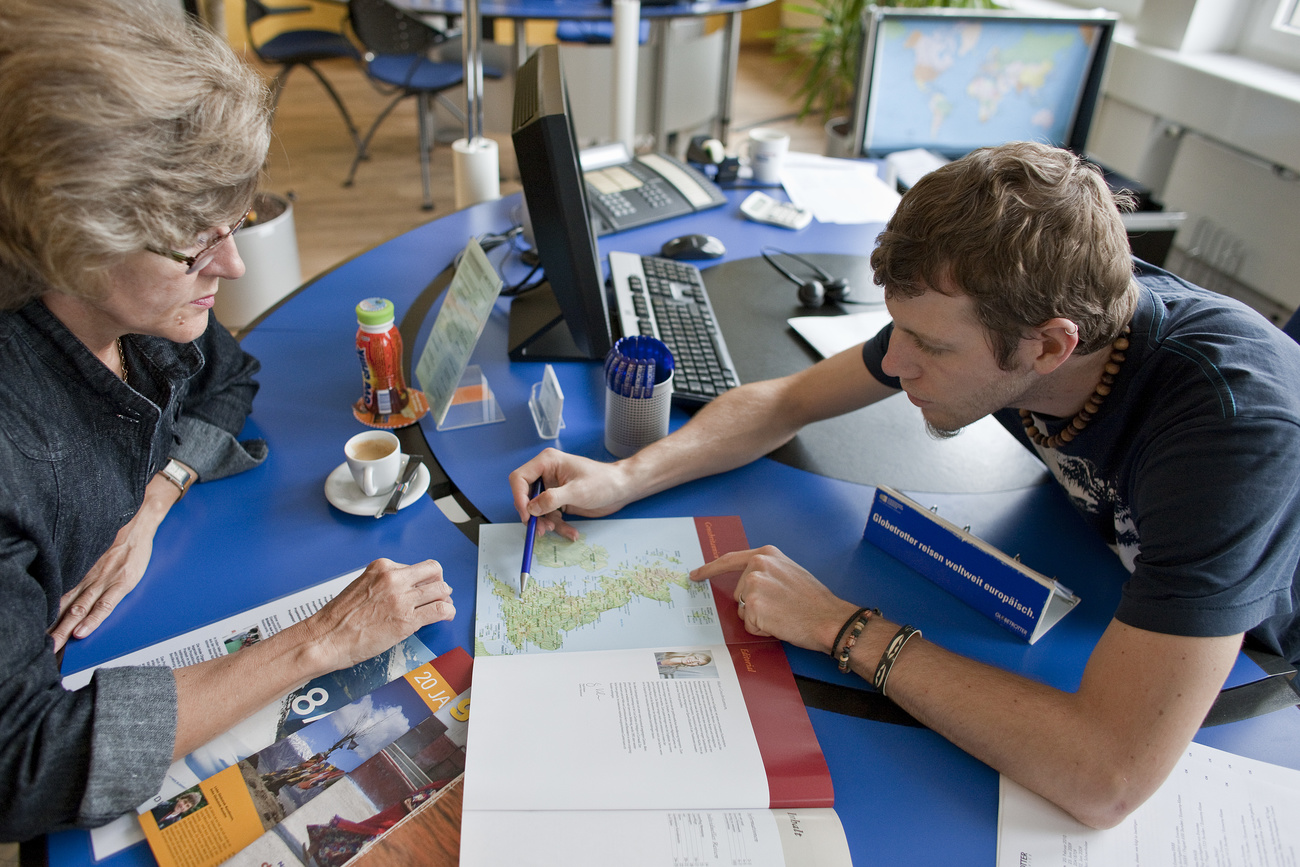
Over the course of the pandemic, healthcare workers, shop assistants and logisticians in many parts of the world have received applause for their work. Experts believe that now is the time to not only applaud these workers but to also give them more say. But is the crisis really the best time for such a move?
Last summer, in the midst of the pandemic, the Swiss travel agency Globetrotter announced that it would introduce sociocracy in its workplace, allowing staff participation in management decisions on matters such as redundancies.
The idea of making the workplace more democratic is being hotly debated internationally. The pandemic has prompted reflections on the importance of the labour force, including those who care for the sick or stock shelves in supermarkets during lockdowns. If workers are essential to a business, should they also not have a greater voice in important decisions?
The notion of workplace democracy encompasses a range of measures and tools that give employees more rights. These include the classic trade union demands: the right to strike, the right to create workplace alliances, and the right to form employee committees.
Workplace democracy also comprises more far-reaching ideas, like direct participation in developing work tasks and processes, deciding on the strategic orientation of a company, and democratically electing managers.
“One of the central lessons of the current crisis is that workers are so much more than just ‘resources’,” writes Julie Battilana, a professor of business administration and sociology at Harvard Business School, in an editorial on the university’s website.“ They invest their lives, their time and their sweat in their companies and clients.” Together with Isabelle Ferreras, who also lectures at Harvard, and Dominique Méda, a professor of sociology at the University of Paris-Dauphine, Battilana put out a manifesto in May 2020.
To date, more than 6,000 academics from around the globe have signed the declaration, “Work: Democratize, Decommodify, Remediate”.External link Rahel Jaeggi, a professor of philosophy at Humboldt University in Berlin, was one of the first Swiss academics to do so.
Decision-making time
Why launch this call for more democracy in the midst of a crisis? Aren’t the chances of success particularly poor at a time when employees fear for their jobs and companies are forced to swiftly react to rapidly changing circumstances?

More
What is it like to work in Switzerland?
“A crisis is also a moment for making decisions,” says Jaeggi. “Things come to a head and things are accelerated. In the end, they get better or worse.”
She says now is the time to act, as the pandemic has brought to the surface several serious shortcomings, such as the unsustainable workload in the health sector, the problems stemming from outsourcing jobs, and the precarious working conditions in Germany’s meat industry.
“These are not new problems, but they are now receiving more media attention and are being discussed on the evening news,” says the professor, who is originally from Bern.
The pandemic has become synonymous with telework. It is not yet clear to what degree this phenomenon has affected workplace democracy. Experts agree that it has given employees a newfound freedom. But some also warn that working from home could increase the pressure on employees to perform and lead to greater control by supervisors.
The reality is that not all workers are able to enjoy the benefits of telework – the nurses and shopkeepers lauded for their commitment during the pandemic, among them.
Philosophy professor Rahel Jaeggi sums it up this way: “The gap between the top-end creative sector and the service industry is widening.”
The health crisis has also shown that almost anything is possible.
“The mantra of not incurring any debts, for example, has disappeared overnight. Suddenly, there are many, many options for government support that no one would have thought possible before.”
Some experts saw the need for greater workplace democracy already during the global financial crisis. One of them was Russell Lansbury, an economics professor in Australia who said in a speech in 2009: “The global financial crisis provides an opportunity […] to undertake reforms that will create a more democratic workplace.” One reason for his optimism is that businesses often reinvent themselves in times of crisis, when it becomes obvious that the old company structures do not work.
Workers’ rights in peril
However, the exact opposite happened after the financial crisis. Even though there are no quantitative studies that indicate the level of democratisation in workplaces around the globe, the Global Rights Index of the International Trade Union Confederation (ITUC) offers some clues. It examines the extent to which workers’ rights are restricted in different countries. In the years after the financial crisis, the overall rating plummeted.
The ITUC 2020 reportExternal link reveals that workers’ rights violations are at a seven-year high, which is in line with the trend of the last few years.
Several European countries, including Denmark, Germany, Finland, Ireland, Italy, The Netherlands and Hungary appear in the top category of the ITUC index – states where there are sporadic workers’ rights violations.
Switzerland appears in the next best category alongside countries such as Canada, Singapore and Namibia – for which reasons it is unclear, as the ITUC did not respond to a request for information. Likely the right to strike in Switzerland has something to do with it. Although the Constitution grants this right, it leaves open the possibility to restrict it; for example, a law may deny “certain categories of people” the right to strike.
Jaeggi does not rule out the possibility that things could pan out differently this time around.
“Of course, it can happen again that things move in the opposite direction and employees get fewer rights instead of more,” she says. “Economic crises can make people more grateful for having a job in such difficult times, and they are less likely to worry about workplace democracy. This in turn gives them fewer bargaining powers.”
Isabella Ferreras, a co-initiator of the workplace manifesto, expressed her concern to a democracy thinktank: “In the short-term, I’m not optimistic.” More democracy at work, she added, is anything but a no-brainer.
Ferreras believes that the pandemic has made the situation worse for employees, although she concedes the will to overcome this gloomy outlook may prevail in the end.
Globetrotter’s decision last year shows that the crisis is not the best time to improve workplace democracy. When asked which experiences the travel company had made with its new organisational structure, spokeswoman Sandra Studer responded rather pessimistically: “Due to the current situation of furlough and working from home, we cannot say how this new structure would work in a ‘normal’ working environment.”

In compliance with the JTI standards
More: SWI swissinfo.ch certified by the Journalism Trust Initiative






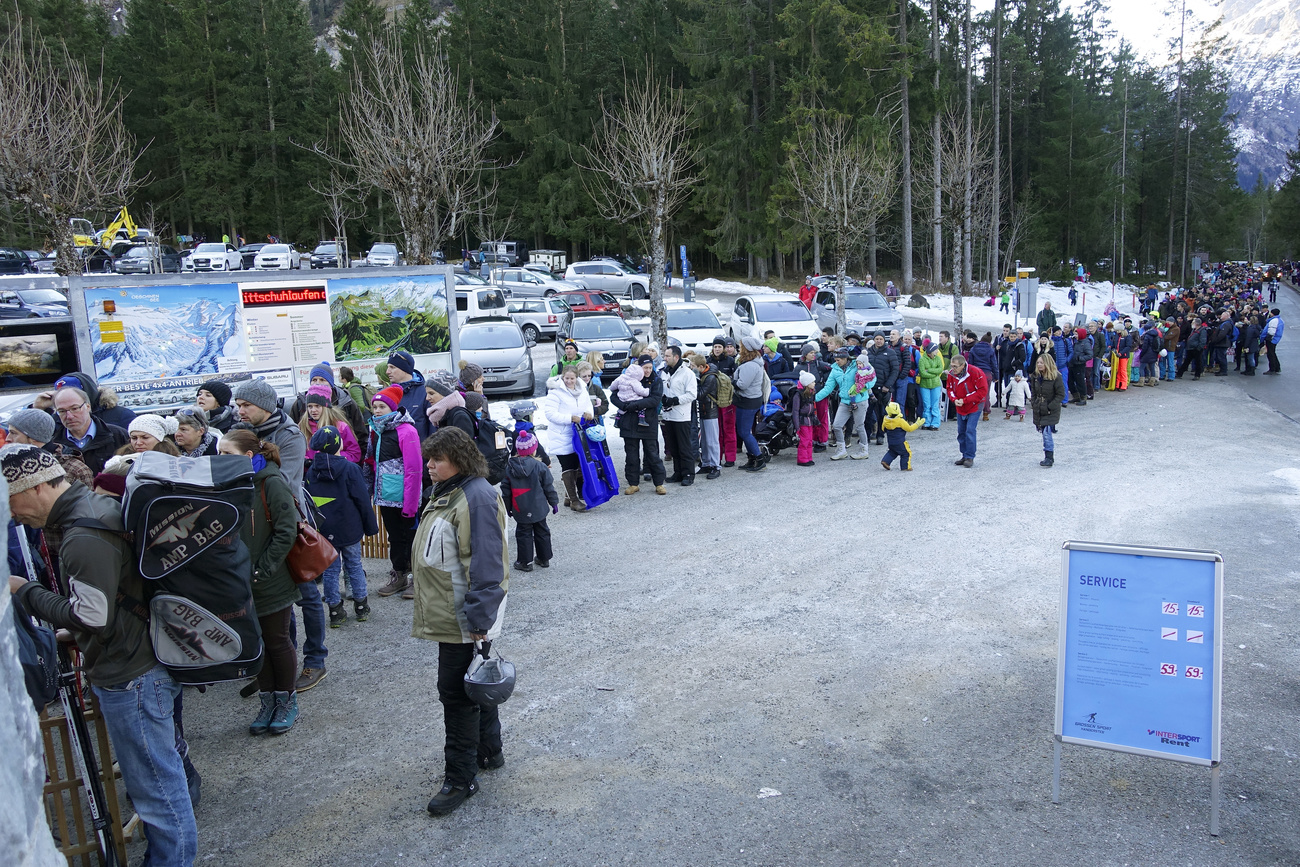



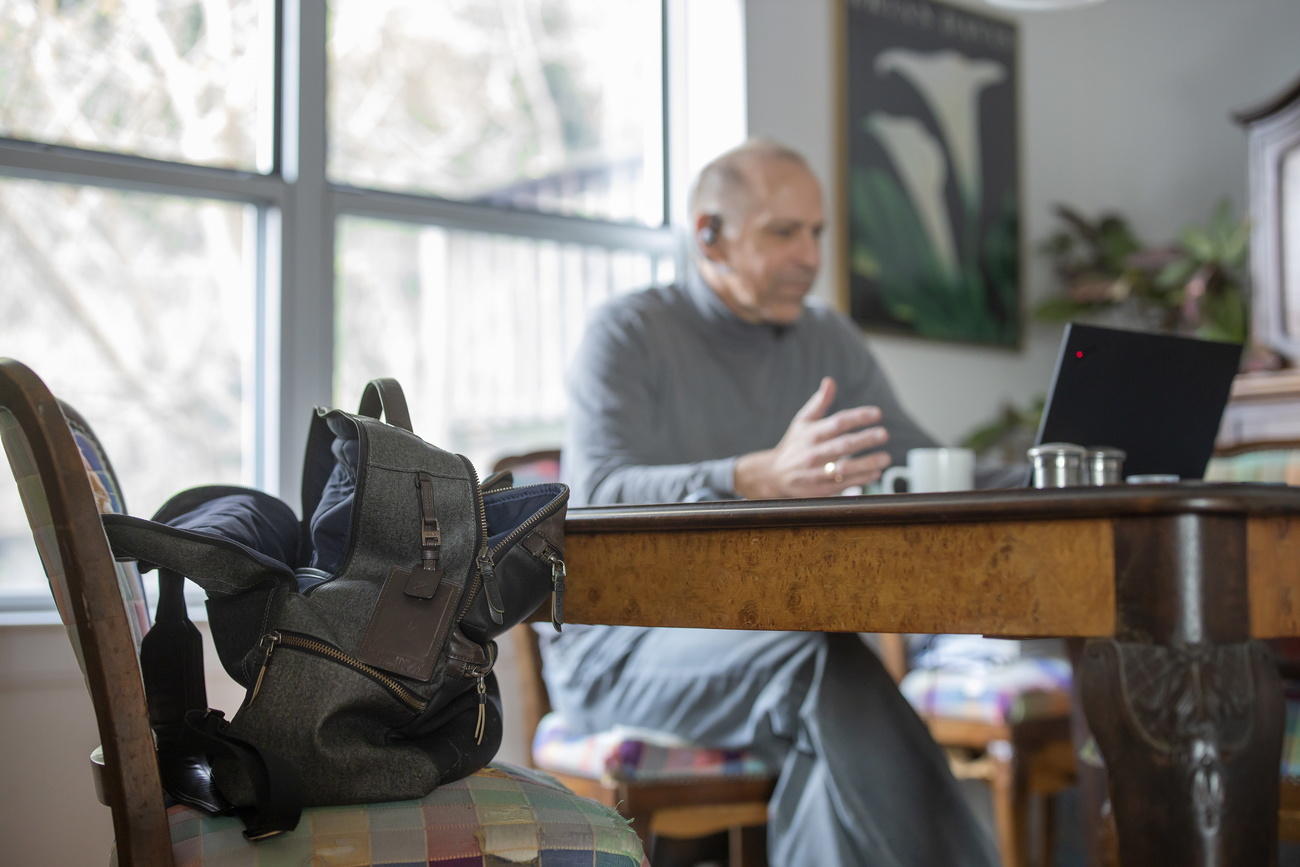
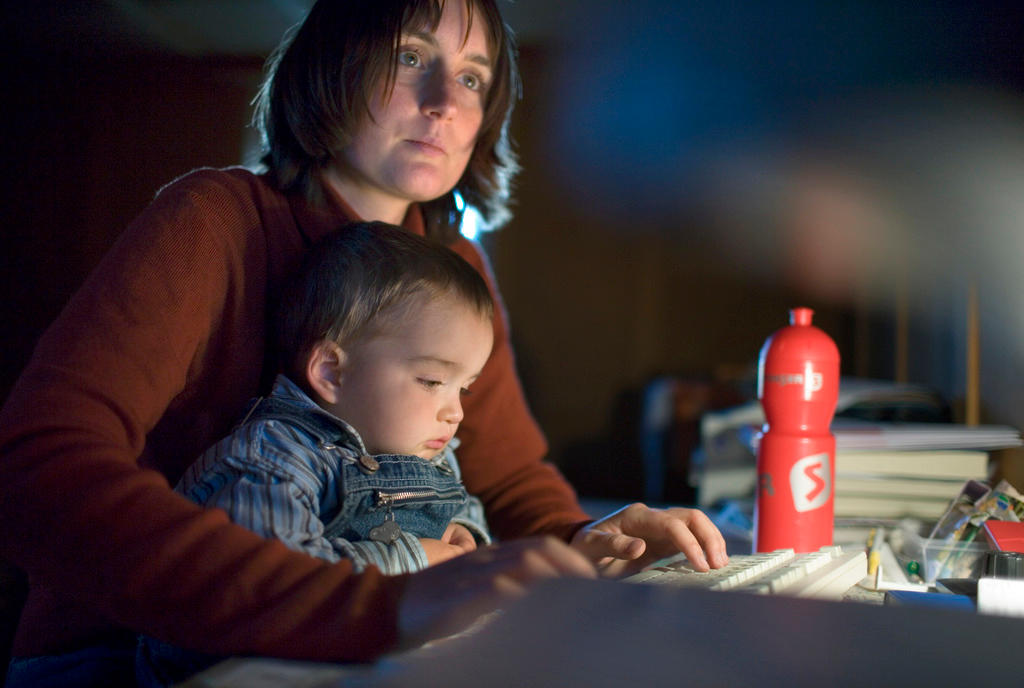
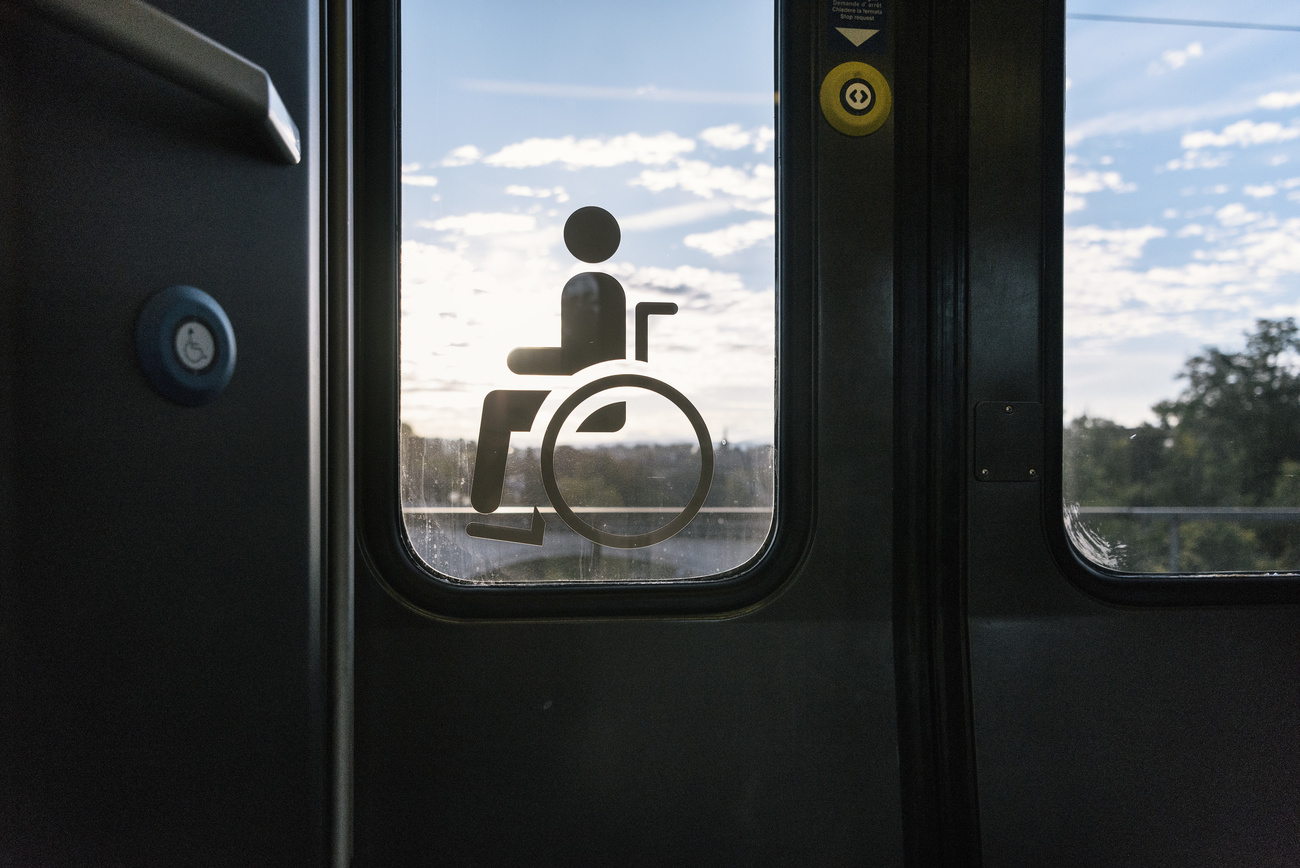
You can find an overview of ongoing debates with our journalists here . Please join us!
If you want to start a conversation about a topic raised in this article or want to report factual errors, email us at english@swissinfo.ch.